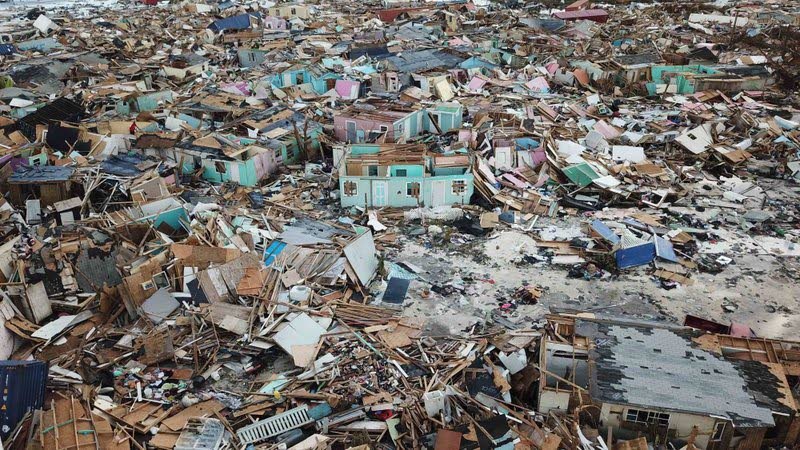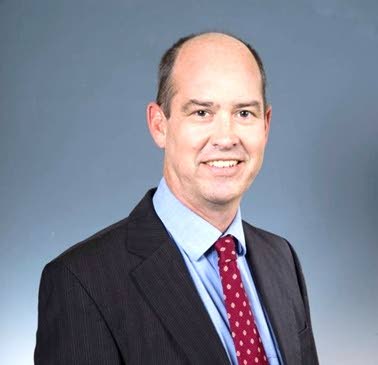Developing, training a C'bean climate-change, health workforce

Dr Chris Oura and Dr Sandeep Maharaj
Faculty of Medical Sciences, UWI
Now that climate change is directly affecting our day-to-day lives here in the Caribbean, it is becoming critical that we think long and hard about how we can ensure that our Caribbean healthcare systems are climate-resilient, both now and in the future, when the effects of climate change will inevitably become more pronounced.
Healthcare systems in the Caribbean remain highly vulnerable to the impacts of climate change. These impacts have been well documented: extreme weather conditions; heat waves; more frequent strong and devastating hurricanes; recurring and extended periods of drought followed by excessive rainfall; increased levels of air pollution; and sea-level rise.

These conditions negatively affect lifestyles, food security, water security, and have direct negative impact on people’s health and wellbeing in the form of heat strokes, respiratory illnesses (chronic and acute), cardiovascular diseases, non-communicable diseases (NCDs), and many vector-borne and infectious diseases.
National socio-economic development is also negatively affected, like workers’ health (lost work capacity, reduced labour productivity and migration).
With small island developing states like TT and its Caribbean neighbours grappling with the effects of climate change and on the frontline of the climate fight, UWI is taking a lead in fostering greater action to make the Caribbean more climate-resilient through its climate change and health leaders fellowship programme.
The goal of the fellowship is to create a network of interdisciplinary working professionals/leaders across 16 Caribbean territories, with the common goal of strengthening resilience to climate change, guided by a “One Health, One Caribbean” approach which recognises the shared challenges across the region and the intricate interconnections between the health of people, animals, plants, and their shared environment. This network of climate change and health professionals will provide strong leadership and innovation, which is needed to design effective and appropriate responses to address the complex challenges and compounded vulnerabilities that characterise healthcare systems in the Caribbean.

The UWI-led and European Union funded climate change and health leaders fellowship programme has partnered with international organisations, Caricom institutes, non-governmental organisations (NGOs) and government ministries from across the region to implement its multidisciplinary programme.
Partners include the Pan-American Health Organization (PAHO), the Caribbean Community Climate Change Centre (CCCCC), the Caribbean Public Health Agency (CARPHA), the Caribbean Institute for Meteorology and Hydrology (CMIH), the Caribbean Disaster Emergency Management Agency (CDEMA), the Windward Islands Research and Education Foundation (WINDREF) and the NGO EarthMedic / EarthNurse.
Fellows have so far been trained from Haiti, The Bahamas, St Lucia, St Vincent and the Grenadines, Barbados, Grenada, Guyana, TT, Jamaica, and Suriname.
This network of multidisciplinary Caribbean professionals from many different sectors, including government, civil society, communities, and the private sector, championing and implementing the "One Health" approach, are being armed with the necessary skills to turn plans and policies into action. Fellows are being furnished with the relevant knowledge and skills to become change agents, enabling them to support their national governments in the inclusion of health elements in their national adaptation plans (NAPs) for climate change and enabling them to lead in the development and implementation of these plans. Each fellow is a working professional in different aspects of their respective country’s healthcare system and can shape and implement policies to make their populations and systems more climate resilient.

Creating such a network of informed, motivated, and highly qualified multidisciplinary professionals who can support their governments and communities, as well as each other, to ensure that Caribbean healthcare systems are resilient to the effects of climate change is a crucial step to building needed capacity, which will ensure that our health is better protected in the face of the current climate change emergency.
More information on the Fellowship programme can be found at: https://sta.uwi.edu/fms/cch/
UWI ON THE GROUND
A university must be centred in the community, leading on the key issues of the day. Accordingly, UWI St Augustine, Trinidad and Tobago, offers this public service series where its leading scientists and researchers will address food security, climate and disaster challenges – Series 1.
Today, we continue last week’s conversation on climate change and health, focusing on getting ourselves ready, guided by two of our foremost medical doctors and researchers in the field: Winner of the UWI Vice Chancellor award for research, Dr Chris Oura is the professor of veterinary virology at the School of Veterinary Medicine who led a large European Union funded project promoting ‘One Health’ across the Caribbean region - He is a member of the UWI covid19 task force and is currently leading a climate change and health leaders fellowship programme.
Dr Sandeep B Maharaj is a lecturer in pharmacy administration and associate dean. He is also the senior global outreach fellow at the Planetary Health Alliance based at the Harvard T Chan School of Public Health. He is the principal investigator for the funded project Caribbean Climate Cares and part of a research team led by Imperial College on Building Global Dialogues for Climate Change and Mental Health.
Prof Rose-Marie Belle Antoine
Principal, UWI, St Augustine


Comments
"Developing, training a C’bean climate-change, health workforce"